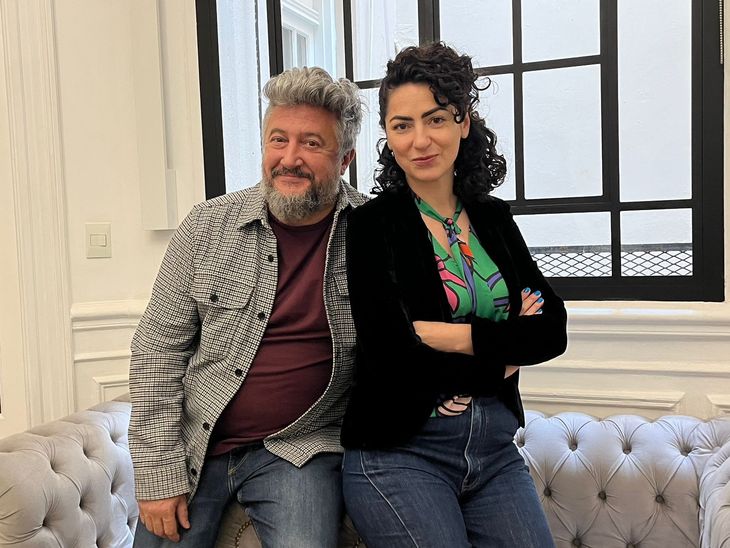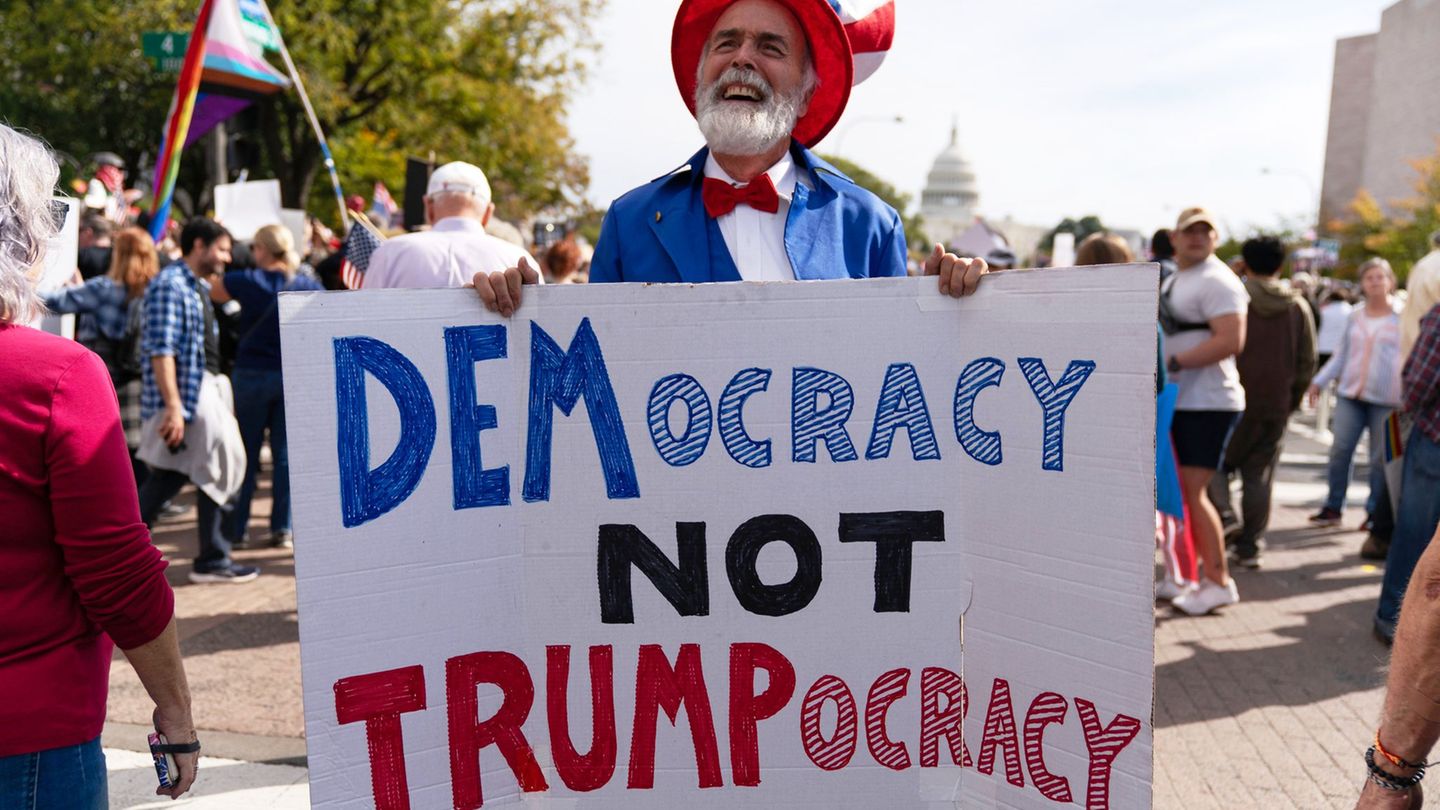“I am not happy with what is happening in culture, but it is still a wake-up call. “The somewhat violent barrage forces us to continue rethinking,” says Pablo Fabregas, who premieres tomorrow with Victoria Almeida “(+) Dad”written by Daniel Dátola and directed by Manuel González Gil.
With general production of Javier Faroni and Juan Manuel Caballéis a comedy about a man in his fifties with adult children and a new wife who are parents and go through all kinds of experiences. It debuts tomorrow at the Metrpolitan and can be seen from Friday to Sunday. We talk with Fabregas.
PHOTO-2024-11-04-23-43-17-1.jpg
Journalist: It is your first text work outside of stand-up, how will you approach it?
Pablo Fabregas: It becomes enjoyable, she is the first one outside the stand and colleagues like Manuel González Gil, who has about 200 works released and knows the job like no one else, and Victoria, who helps me if I mess up something and is loving and fun, this becomes very entertaining . It’s my first work of text so they grab me between cotton balls, I’m nervous about forgetting the lyrics.
Q: What is new about this work about the hilarious and intense universe of “mommies and daddies”?
PF: The work talks about two things at the same time and the two go in parallel. A guy being a dad when he thought he wasn’t going to be any more, suddenly at 50, mature, he becomes one again when he already had two children. There appears the change in the world of fatherhood and he has to adapt to the pineapples. It is also a work that deromanticizes, from comedy, the part of pregnancy and the first months of motherhood and fatherhood that are chaotic, especially for the world of mothers. Vicky is a mother and knows what it’s like to be a collapsed mother trying to fulfill a lot of concepts about motherhood.
Q: What different perspective do you bring to a topic that was addressed with humor in books, series, films and theater?
PF: Theater and humor, from Shakespeare to the Greeks, have themes that number 20 in total and we repeat them because humanity does not solve them. Here it is a game between a guy who is adjusting to his current life and a woman collapsed like any mother, between childbirth and the first months of parenting. The guy has to learn everything because he is older and she because it is her first child. That gives a particular meaning to the work, then love, education, the couple, life itself are the great themes of the theater.
Q: How does the character you play contrast or relate to the dad you were in real life?
PF: It forces me to rethink those first moments, I was a present father but there are things I would do differently, it makes me want to yell at this character “don’t do that.” With only one child it is all learning and the things that I thought my wife was not suffering without realizing it. Today I would be more attentive to many issues, what it is like for a woman to be gestating and carrying out the first months. I did things that were good and many things that were bad.
Q: How has fatherhood transformed over the years?
PF: We are walking on quicksand, proposing a big change for both women and men. The big difference is being more attentive, being more aware, more of a companion, not just sitting next to them but accompanying them throughout the entire process, not just parenting but accompanying the couple and keeping an eye on how they are doing. That’s a big change from when I was a dad to now.
Q: How do you see theater and culture today?
PF: There is a portion of the theater that I am part of and I see the theater as super healthy, I see the things that are done, the actors, actresses, directorial proposals and despite the budgets and the efforts we make to be able to make plays, it is a moment in which there is a new challenge to rethink and resist some blows that are eating theater and culture.
Source: Ambito
I am an author and journalist who has worked in the entertainment industry for over a decade. I currently work as a news editor at a major news website, and my focus is on covering the latest trends in entertainment. I also write occasional pieces for other outlets, and have authored two books about the entertainment industry.




